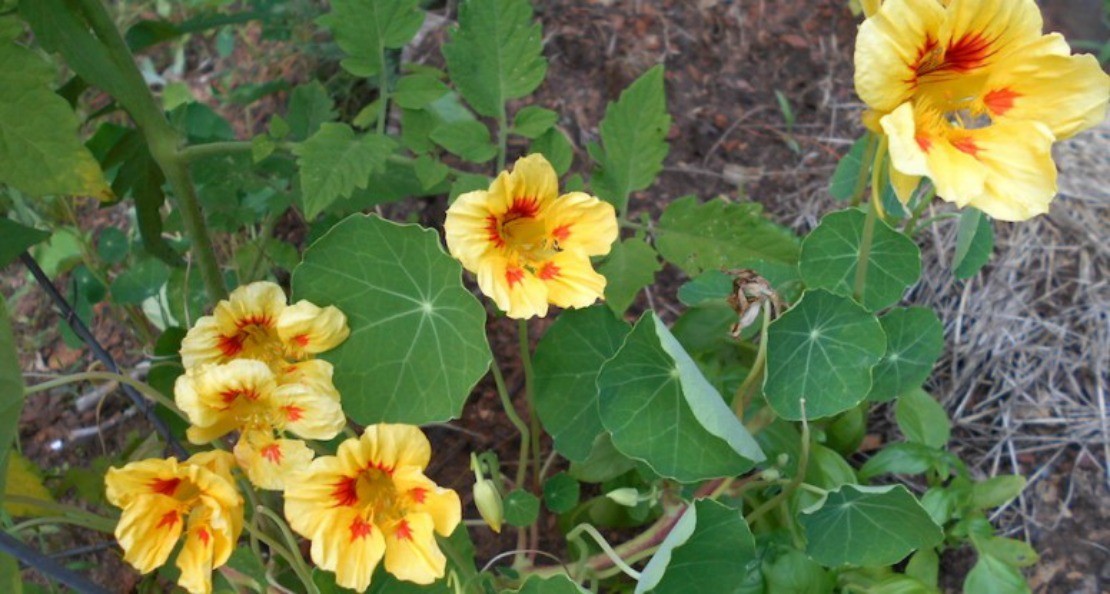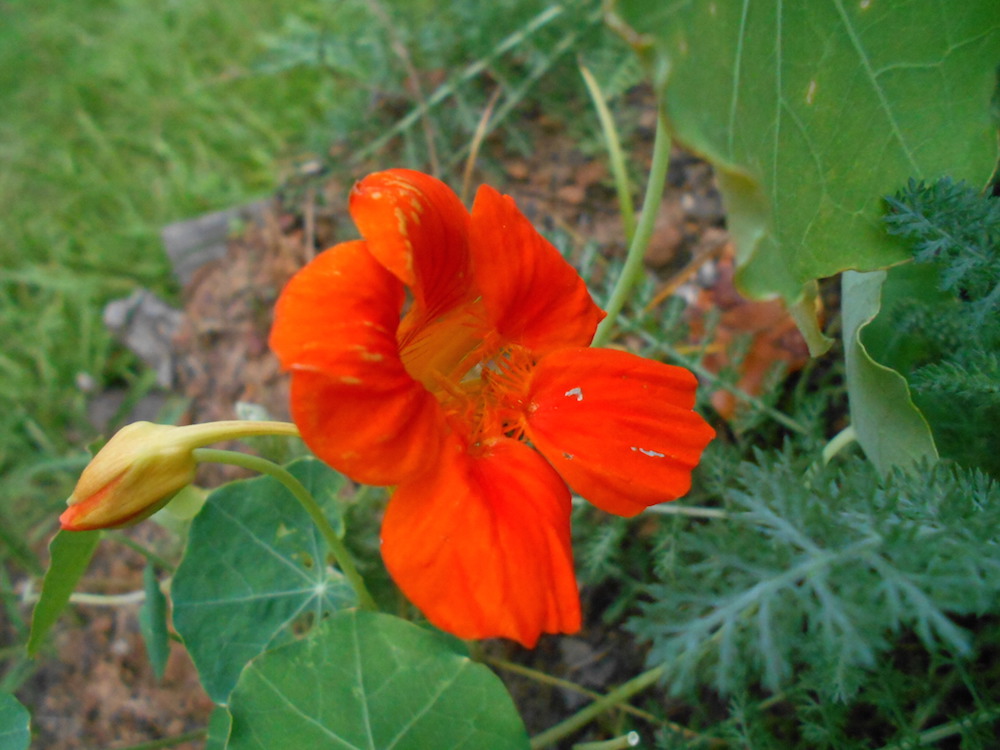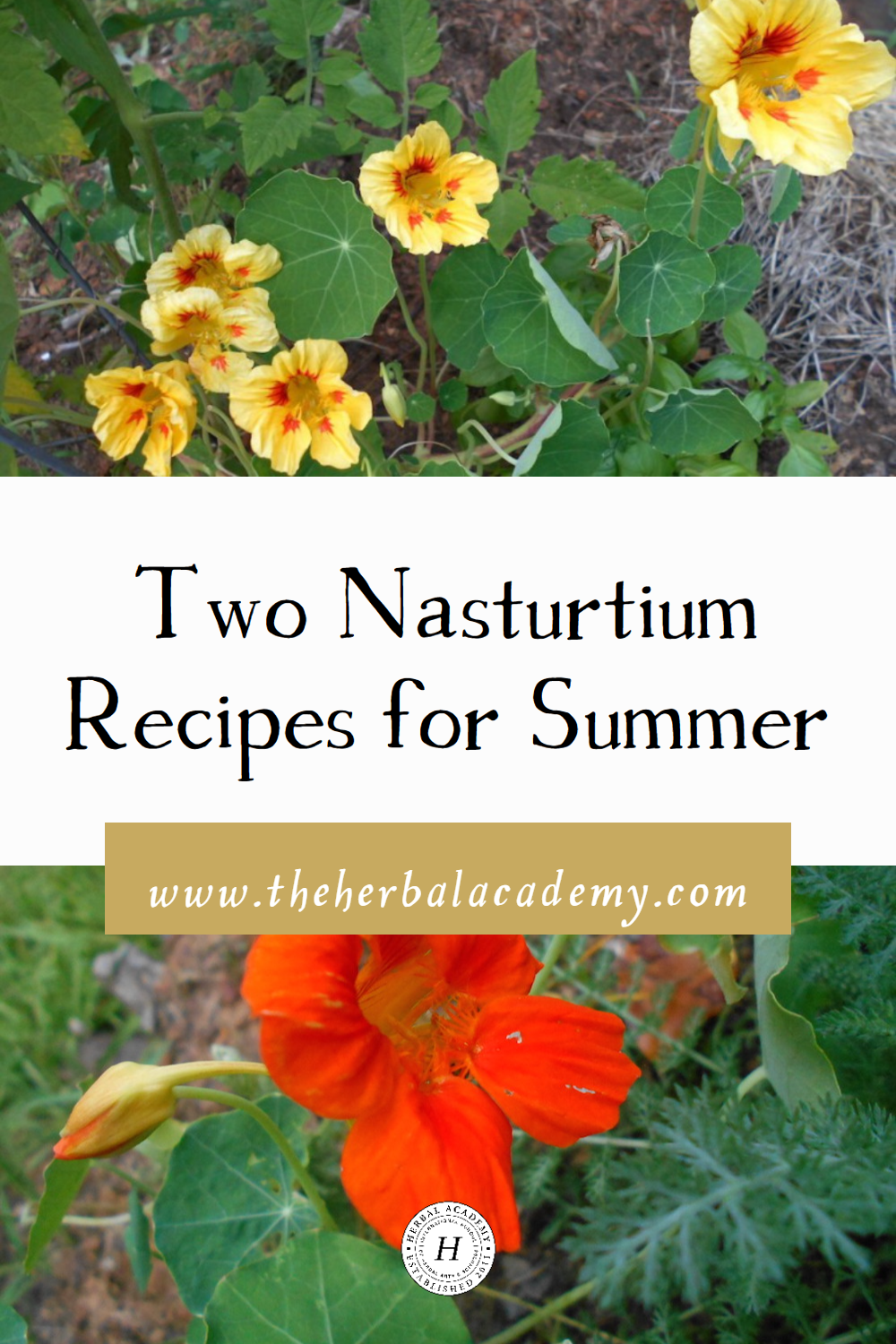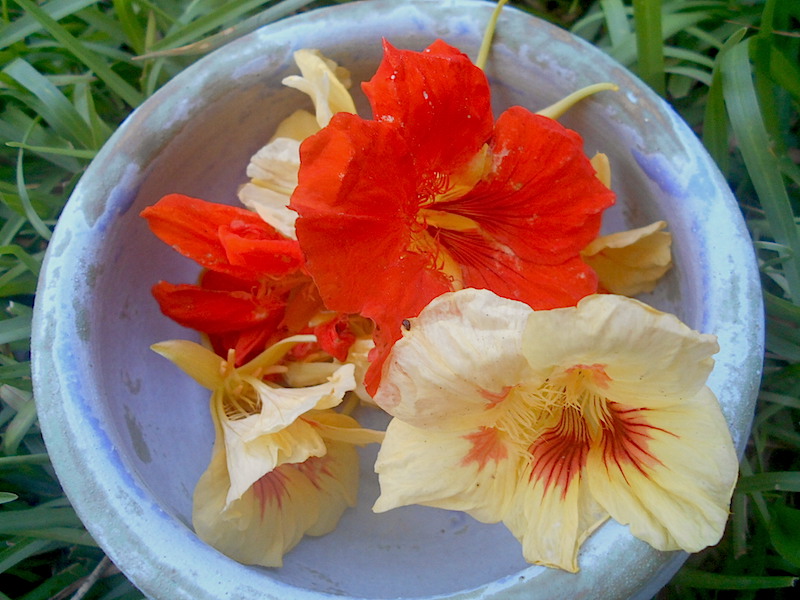
Two Nasturtium Recipes for Summer
As spring turns to summer, gardens and farmers markets are overflowing with beautiful options. In my own garden, the nasturtiums are thriving, and I have been using them in a variety of ways. Nasturtium’s edible leaves and blossoms are high in vitamin C and exhibit antimicrobial and antioxidant properties. These benefits make nasturtiums a worthwhile plant to preserve. The nasturtium recipes and instructions below will help you enjoy this edible plant long after summer fades away.
Preserve Your Nasturtiums
Nasturtium’s peppery flavor makes it a good candidate for herbal vinegar. You can use this vinegar to add a splash of flavor to various dishes, or combine it with olive oil for a quick and easy salad dressing.
Nasturtium Vinegar
1-2 cups white wine vinegar (or as much needed to cover flowers)
Clean, dry glass jar or bottle
- Place the flowers in a bottle or jar, and pour vinegar over them.
- Put a lid on the jar and leave it in a cool, dark place for 6-8 weeks. Label your jar.
- When the vinegar is ready, strain out the flowers and rebottle. Your nasturtium vinegar will keep for several months on the shelf, but it will last longer if you opt to store it in the refrigerator.
Using Dried Nasturtium Leaves
Drying nasturtium leaves is another way to preserve the plant’s peppery goodness. The dried leaves can be powdered and sprinkled onto food as a seasoning, or used in herbal tea blends to soothe a cough or cold.
To dry nasturtium leaves, spread them onto dehydrator trays and process until crispy. Alternately, you can spread them onto baking sheets and dry them in the oven at a very low temperature. Store the finished leaves in a glass jar.

Using Nasturtiums to Protect Your Garden
Bugs-Be-Gone! A unique attribute of this plant is that it can help control the less than desirable insects in your garden. Planted throughout the garden, nasturtium can gently repel insects, but if aphids are taking over, try this simple spray.
Natural Aphid Spray
2 cups water
1 tablespoon liquid castile soap
Plastic spray bottle
- Place the leaves in a heatproof container (such as a large mason jar).
- Heat water to boiling and pour over the leaves.
- Allow to steep for 10 minutes; then strain leaves.
- Mix in the liquid soap and pour the mixture into the spray bottle.
- Use this mixture sparingly to help control aphid infestations in your garden.
Enjoy getting to know the sunny nasturtium this summer—an herb that serves as both a plant and human ally.
For another spin on nasturtium vinegar, check out this article. And if you want to create a little summer magic for the kids, learn how to make a living fort using nasturtiums here.










